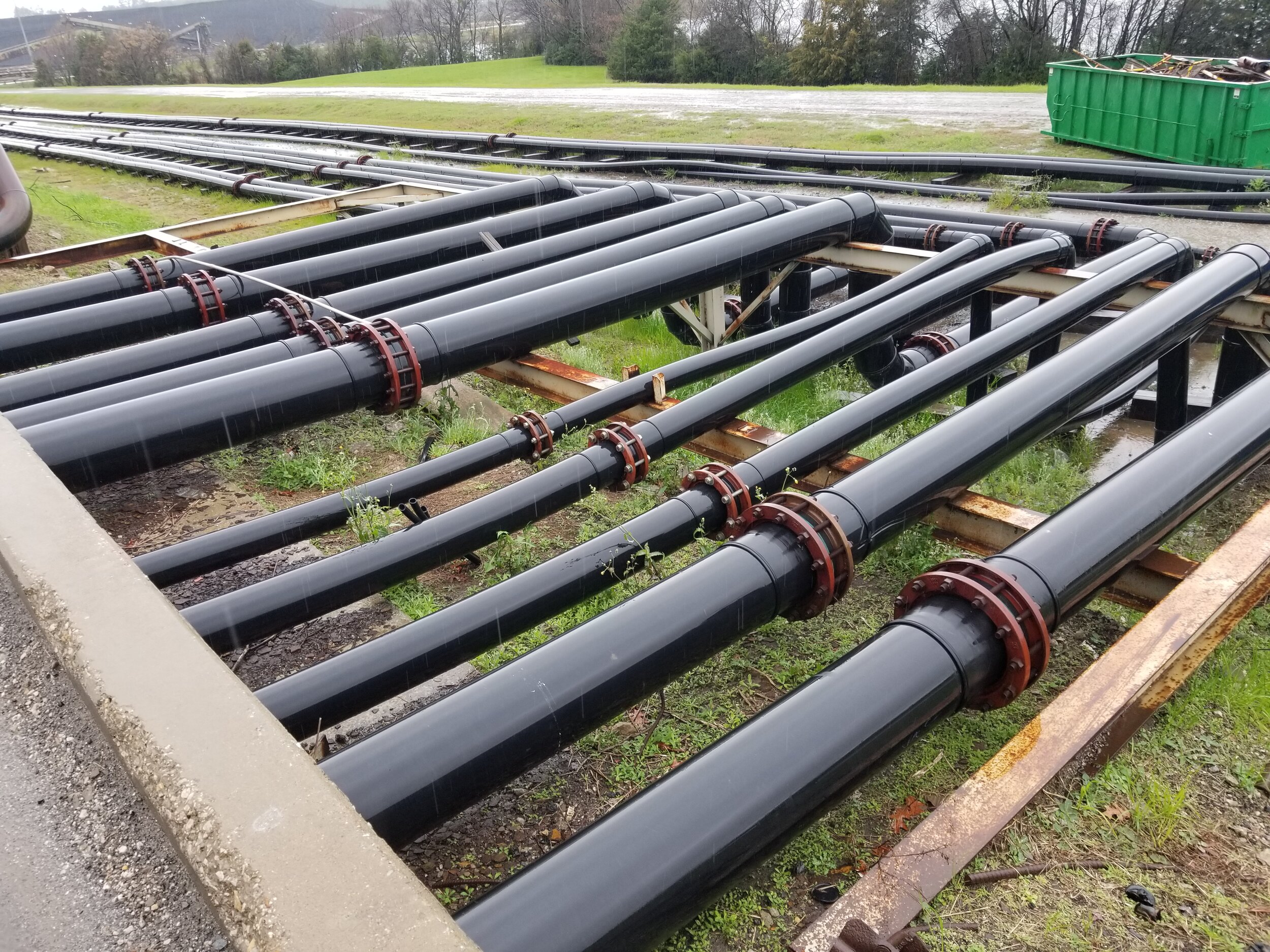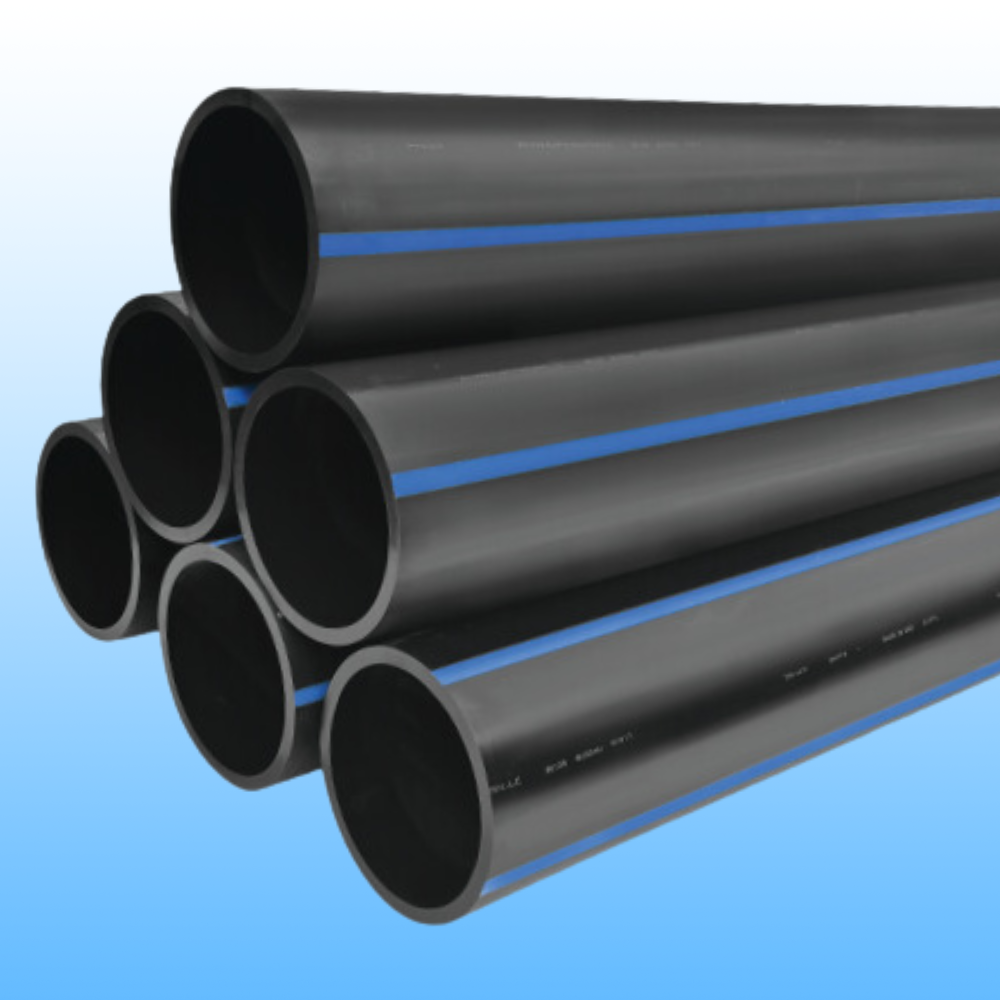Comprehending the Trick Conveniences of HDPE Pipeline for Water and Wastewater Administration
The usage of HDPE pipe in water and wastewater monitoring presents many benefits that merit factor to consider. Its remarkable toughness and long lifespan make it a favored choice for many jobs. Additionally, the material's resistance to rust and chemical damage enhances its reliability in different atmospheres. Nonetheless, the advantages prolong past just durability and resistance. Exploring its cost-effectiveness and ecological influence discloses much more compelling reasons for its extensive adoption in contemporary facilities
Remarkable Sturdiness and Durability

HDPE pipe sticks out for its exceptional toughness and long life, making it a recommended selection in water administration systems. Constructed from high-density polyethylene, these pipes can withstand considerable pressure and anxiety, making sure dependable performance with time. Their robust nature enables them to sustain extreme environmental conditions, including temperature fluctuations and dirt movements, which can cause various other products to fall short.
The life expectancy of HDPE pipes usually exceeds 50 years, giving an affordable remedy for communities and sectors alike. Furthermore, the product's lightweight homes streamline installment, reducing labor prices and timeframes. This sturdiness minimizes the need for constant repairs or substitutes, better enhancing its economic charm.
In water monitoring applications, the reliability of HDPE pipelines implies fewer disturbances and enhanced service continuity, making them important to lasting infrastructure growth. The mix of durability and long life solidifies HDPE's function as a cornerstone in reliable water administration options.

Resistance to Deterioration and Chemical Damage
While several materials catch corrosion and chemical damage in time, HDPE pipelines exhibit impressive resistance, making them ideal for various water monitoring applications. This durability originates from the molecular structure of high-density polyethylene, which is inherently non-reactive and does not corrode like steels or break down from direct exposure to rough chemicals. Therefore, HDPE is extremely efficient in settings with aggressive compounds, such as wastewater systems that might consist of acids, bases, and natural solvents.
Additionally, HDPE pipelines can stand up to ecological factors such as soil level of acidity and saline problems, better enhancing their suitability for diverse applications (Pipe Manufacturing Midland TX). Their capability to preserve structural integrity with time reduces the danger of leakages and failures, which is important in making certain the security and integrity of water distribution and wastewater administration systems. Subsequently, the resistance to corrosion and chemical damages noticeably adds to the total effectiveness and long life of HDPE piping solutions
Cost-Effectiveness and Economic Advantages
When thinking about the financial implications of water management systems, the cost-effectiveness of HDPE pipelines comes to be noticeable. These pipes use reduced setup and upkeep expenses compared to traditional products like steel or concrete. Their light-weight nature simplifies transportation and setup, resulting in decreased labor expenses. Additionally, HDPE pipelines exhibit a long life-span, usually going beyond half a century, which equates to fewer replacements and long-term financial savings.
The resistance of HDPE to rust and chemical damage minimizes the requirement for pricey repairs and substitutes. The pipes additionally sustain effective water circulation, reducing energy prices connected with pumping systems. By reducing leakages and water loss, HDPE pipelines add to significant economic advantages for communities and markets alike. Overall, the preliminary investment in HDPE piping can produce considerable monetary returns over the lifespan of the water management system, making it a prudent option for lasting infrastructure advancement.
Ecological Sustainability and Decreased Influence

Versatility and Flexibility in Setup
Due to their distinct residential or commercial properties, HDPE pipes offer impressive convenience and versatility in setup, making them suitable for a wide variety of applications. Their light-weight nature permits for much easier handling and transportation, decreasing labor expenses and setup time. HDPE pipes can be bent and shaped to fit various terrains and project needs, which is particularly helpful in testing settings.
In addition, their resistance to deterioration and chemical damage allows for setup in diverse setups without the demand for specialized protective finishings. The capability to fuse joints produces a constant, leak-free system, enhancing the overall stability and dependability of the setup. HDPE's versatility additionally suits ground movement, minimizing the danger of damages in locations prone to shifting dirt. Overall, these characteristics make HDPE pipelines not just versatile but likewise a recommended choice for water and wastewater administration systems.
Regularly Asked Inquiries
Just How Does HDPE Pipe Compare to PVC in Water Management Applications?
HDPE pipe provides exceptional versatility, resistance to rust, and resilience compared to PVC. Its lighter weight facilitates much easier installment, while its long life expectancy minimizes substitute prices, making HDPE a favored choice in water administration applications.
What Is the Life-span of HDPE Piping Under Regular Problems?
Under typical problems, HDPE pipes can have a life-span ranging from Full Article 50 to 100 years. Their longevity and resistance to corrosion add to their long-lasting performance in numerous applications, making them a trusted choice for infrastructure.
Are HDPE Water Lines Recyclable After Their Solution Life?
Yes, HDPE pipelines are recyclable after their solution life. Pipe Supplier American Plastics Midland. They can be refined and repurposed right into new products, greatly reducing environmental impact and promoting sustainability within the sector, making them an environmentally friendly option for piping solutions
What Is the Setup Process for HDPE Pipes?
The installation procedure for HDPE pipelines involves website prep work, trenching, pipe blend or mechanical signing up with, backfilling, and pressure testing. Proper methods guarantee a resilient and reliable system for delivering water and wastewater properly.
Can HDPE Pipes Be Used for Both Drinkable and Non-Potable Water Solutions?
Yes, HDPE pipes can be utilized for both safe and clean and non-potable water supply. Their flexibility, sturdiness, and resistance to deterioration make them suitable for various applications, guaranteeing secure and effective transportation of water in various contexts.